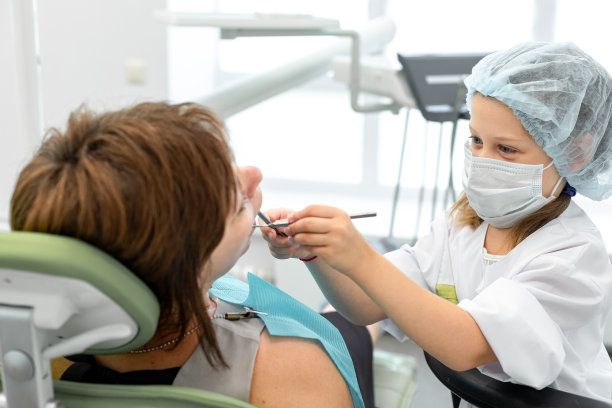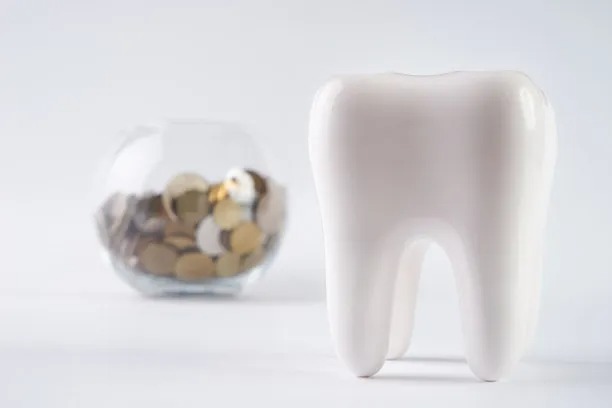Summary: Dental implant procedures represent a significant advancement in restorative dentistry, offering patients a long-lasting solution to tooth loss. However, the success of these procedures depends heavily on certain essential considerations and precautions during both the installation and the recovery phases. This article will explore four critical aspects: patient evaluation, surgical technique, post-operative care, and lifestyle choices. Each segment will focus on how these elements contribute to the overall success, emphasizing the necessity of thorough planning and adherence to guidelines to ensure optimal outcomes for dental implant patients.
1. Patient Evaluation Prior to Surgery

Before undergoing a dental implant procedure, thorough patient evaluation is crucial. This process typically begins with a comprehensive dental examination, which includes detailed imaging such as X-rays or 3D scans. These imaging techniques help in assessing the quality and quantity of the jawbone, a critical factor determining the feasibility of implant placement.
Moreover, the patients medical history plays a vital role in evaluating candidacy for implants. Conditions such as diabetes, osteoporosis, or heart disease may pose risks, necessitating additional precautions or adjustments in treatment plans. Collaborating with a healthcare provider ensures that all health issues are addressed prior to surgery.
Lastly, patient expectations should also be managed during this evaluation process. Patients need to understand the timeline, potential complications, and the level of post-operative care required, which helps in reducing anxiety and improving satisfaction with the outcome.
2. Importance of Surgical Technique
The surgical technique employed during the placement of dental implants is fundamental to their success. Skilled practitioners utilize a variety of techniques, ensuring that the placement is precise and that the implant integrates effectively with the bone. Using advanced technology and techniques, such as guided surgery, can minimize trauma to surrounding tissues and enhance healing.
In addition to the surgical approach, maintaining a sterile environment during the surgery is imperative to prevent infections, which can jeopardize the implant. Dentists should adhere to strict protocols concerning sterilization and the use of antibiotics when necessary, as these factors greatly influence postoperative outcomes.
Furthermore, the choice of implant design and materials can also impact success. High-quality implants made from biocompatible materials encourage better integration with the jawbone, enhancing stability and longevity. Therefore, selecting the appropriate devices tailored to the patients specific needs is essential.
3. Post-Operative Care for Optimal Healing
After the placement of dental implants, rigorous post-operative care is essential for promoting success and recovery. Patients should follow their dentist’s instructions closely, which typically include pain management, oral hygiene practices, and dietary modifications. Maintaining proper hygiene is particularly vital as it prevents infection and fosters healing.
Moreover, regular follow-up appointments with the dentist allow for monitoring of the healing process, ensuring that any complications can be addressed promptly. These check-ups also provide an opportunity for adjustments to post-operative care as needed, such as changes in medication or activity restrictions.
Additionally, patients should manage their expectations regarding recovery. It is crucial to understand that while some discomfort may be expected, significant pain or prolonged complications require immediate attention. Awareness of these signs facilitates timely intervention and contributes to overall success in the healing of dental implants.
4. Lifestyle Choices Impacting Recovery
Lifestyle choices play a significant role in the recovery process post-dental implant surgery. Smoking, for example, is a detrimental habit that can severely impede healing and increase the risk of implant failure. Patients are often advised to refrain from smoking before and after the procedure to promote better outcomes.
Nutrition also plays a pivotal role in recovery. A diet rich in vitamins, minerals, and protein can enhance healing processes by supporting tissue regeneration and immune function. Incorporating whole foods and avoiding processed items will contribute positively to the body’s recovery efforts.
Finally, managing stress levels is vital as stress can suppress immune function and prolong recovery. Patients are encouraged to engage in relaxing activities, exercise moderately, and seek support when needed, thereby aiding in a smoother and more efficient healing process.
Summary:
In summary, the successful implantation of dental devices hinges upon careful patient evaluation, precise surgical techniques, diligent post-operative care, and mindful lifestyle choices. By addressing these essential considerations, both practitioners and patients can work in tandem to enhance the likelihood of successful outcomes.
This article is compiled by Vickong Dental and the content is for reference only.
Vickong Dental
Vickong Dental is a large medical group established in Hong Kong in 2008 by professors from well-known medical universities in Guangdong and Hong Kong, as well as medical doctors from key national '985' universities (including Master's supervisors and senior professors). The chain of branches brings together expert dentists with PhDs and Master's degrees from Hong Kong and Mainland China, committed to providing high-quality dental treatment.
"Vickong Dental Practices the University Motto of 'Healing and Serving Society,' with a Stable Operation for Sixteen Years. It Has Been honored with Hong Kong Enterprise Leaders's Choice,' and is a Global Trusted Implant Center for the Nobel Implant System. Recommended by Hong Kong Metro Broadcast and Guangdong Television, it Serves Customers from Over Thirty Countries and Regions, Gaining the Trust and Favor of Citizens from the Guangdong-Hong Kong-Macau Greater Bay Area and Surrounding Cities.

Thousands of customers' unanimous praise
The most recognized and highly recommended dental service by customers in the Guangdong-Hong Kong-Macau Greater Bay Area
We Ensure You Receive Detailed Care and Attention Here
Hong Kong standards, Shenzhen prices, Your Trusted English-speaking dentists

Vickong Dental Medical-Grade Instrument Disinfection Process
Vickong Dental Medical-Grade Instrument Disinfection Process

Vickong Dental Chain: A Warm and Comfortable Environment for Treatment






Appointment Hours

Q&A
Why choose Vickong Dental?
Vickong Dental practices the university motto 「Medicine to Benefit Society」, with each branch bringing together highly qualified dentists with doctoral and master’s degrees from Hong Kong and the Mainland, and has maintained seventeen years of steady operation。Recipient of 「2024 Hong Kong Enterprise Leaders Brand」, 「2025 Hong Kong Enterprise Leaders Brand」, a Nobel Biocare Global Trusted Implant Center, and a brand recommended by Metro Radio Hong Kong and Guangdong TV。
To date, we have served customers from more than thirty countries and regions,earning exceptionally high word-of-mouth recognition and trusted recommendations from residents across the Guangdong-Hong Kong-Macao Greater Bay Area and surrounding cities
We have eight major branches in Zhuhai、Shenzhen,and a consultation and service assurance center in Hong Kong,so you can book a free consultation at any time for any questions,which is very reassuring.
If I do not accept the quotation after the CT scan, will I be charged??
No! As long as the actual treatment has not started, you will not be charged any fees.
Will there be any additional charges during the treatment process?
No, there won’t be any additional charges. Before treatment begins, we will clearly explain the treatment plan and its corresponding fees. Only after the patient agrees and signs the consent form will we proceed with the dental service.
Can I pay in Hong Kong dollars?
Yes. Vickong Dental accepts payment in Hong Kong dollars. The amount will be converted based on the exchange rate of the day, and the applicable rate will be clearly communicated to you in advance.
Can I reschedule my appointment at any time?
Yes. Please contact us via **WeChat** or **WhatsApp** as early as possible, providing your original appointment time and details, along with your preferred new date and time slot for rescheduling.













